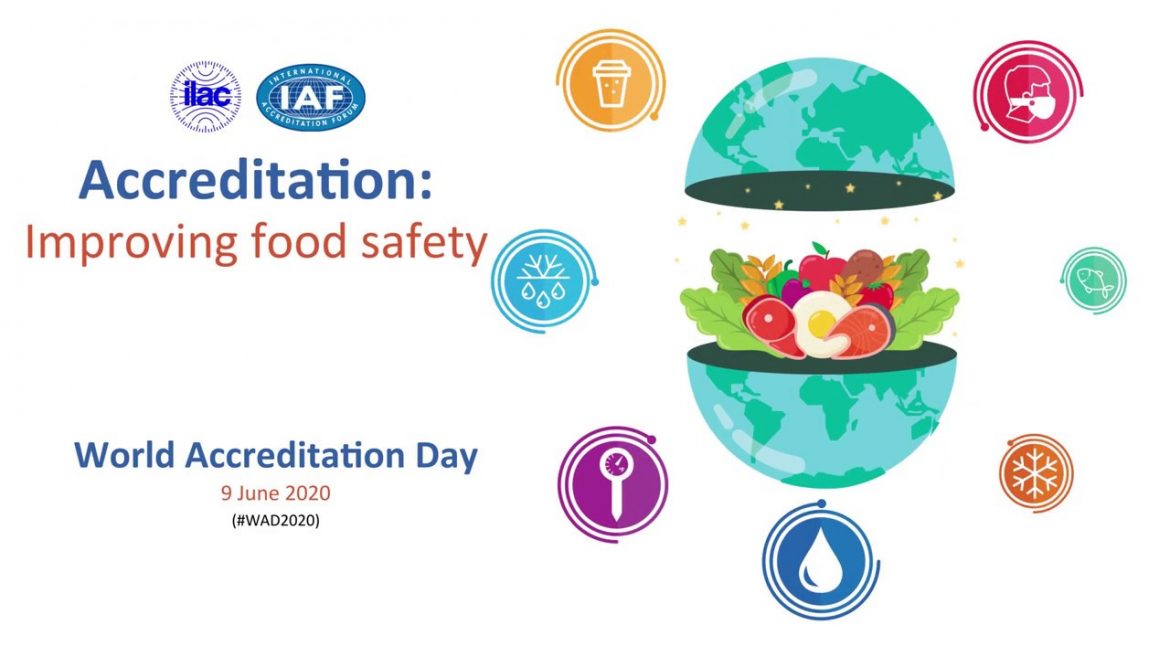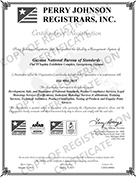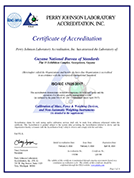On Tuesday, June 09, 2020, Standards and Conformity Assessment Institutions like the Guyana National Bureau of Standards (GNBS) across the globe will join in commemorating World Accreditation Day (WAD) under the theme “How Accreditation Improves Food Safety”.
Globally, WAD is an initiative established by the International Accreditation Forum (IAF) and the International Laboratory Accreditation Cooperation (ILAC), to raise awareness on the importance of accreditation.
Accreditation is the process in which certification of competency, authority, or credibility is presented. It is essentially a quality check and it is important to food safety.
Food safety describes the handling, preparation, and storage of food in ways that prevent food-borne illness. Unsafe foods can transmit pathogens, which can result in the illness or death of persons or other animals.
Each year worldwide, unsafe food causes 600 million cases of food-borne diseases and 420 000 deaths. 30% of food-borne deaths occur among children under 5 years of age. WHO estimated that 33 million years of healthy lives are lost due to eating unsafe food globally each year, and this number is likely an underestimation.
The International Organisation for Standardisation (ISO) has been playing a very significant role in ensuring food safety through the development of international food safety standards to which many food-related organisations are accredited.
According to ISO, never has hygiene had so much attention, including that for food. This year’s World Accreditation Day focuses on food safety and ISO has new standards in the pipeline with that in mind.
Usually, we are all now clear about washing our hands, but what about everyone else? Are they doing so? Even more importantly, how do we know that those in the food supply chain have taken all the right hygiene steps to keep us safe?
While there are many laws and regulations to that effect, it is Conformity Assessment, including inspection, testing, and certification that assures those requirements are being met. However, if the testing body is not in conformance to standards the whole system falls apart. This is where accreditation comes in, ensuring that those conducting the assessments are competent, impartial, and deliver the expected results.
ISO has developed many of the International Standards referenced by regulators for assessing the competence of inspection bodies, laboratories, and certification bodies throughout the food supply chain, from crop and animal production to distribution, storage, catering, packaging, and more.
These include ISO/IEC 17020, Conformity assessment – Requirements for the operation of various types of bodies performing inspection, ISO/IEC 17021-1 Conformity assessment – Requirements for bodies providing audit and certification of management systems – Part 1: Requirements, and ISO/IEC 17065, Conformity assessment – Requirements for bodies certifying products, processes, and services.
Responding to immediate industry needs, work is now underway on a set of common food-safety-specific requirements that shall be met in addition to existing standards. The upcoming ISO 22003-2, Food safety management systems – Requirements for bodies providing audit and certification of food safety management systems – Part 2: Requirements for bodies providing audits of food safety management system elements in conjunction with safe food product/process certification, will specify additional tailored requirements that are to be used concurrently with ISO/IEC 17065. It will include internationally accepted food safety principles and management system elements.
Also, the technical specification ISO/TS 22003-1, which defines requirements for bodies providing audit and certification of food safety management systems, is currently being revised and upgraded to an International Standard. It will provide common elements for food safety certification supplemental to ISO/IEC 17021-1.
The new additions are developed in response to changes in industry regulations that are moving towards greater harmonisation and consistency of requirements, which, ultimately, will improve the conformity assessment process – and food safety.
To commemorate WAD 2020, the GNBS would be hosting a free Webinar on June 09 at 09:30h to discuss Food Safety through the use of standards. Stakeholders in the food sector can participate in this event by registering online at: gnbsgy.org/bookings.
To learn more about conformity assessment and accreditation, use the link https://www.iso.org/casco.html







